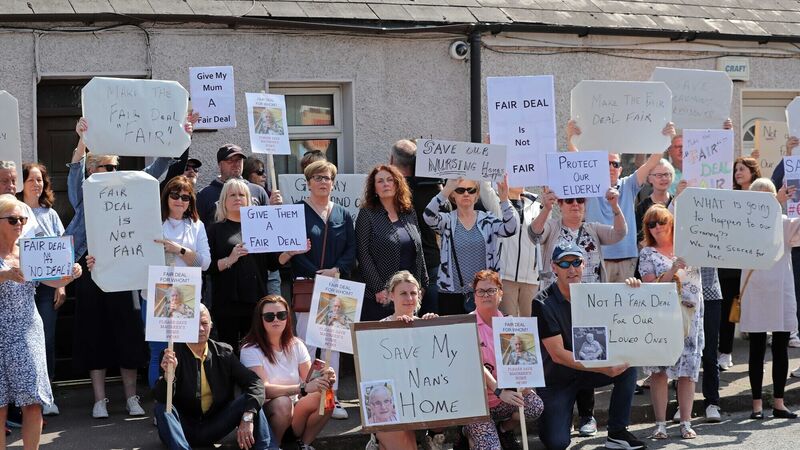Niamh Griffin: Our elderly nursing home residents deserve a fair deal

Families and friends of Beaumont Residential Care residents protesting at the constituency office of Tánaiste Micheál Martin in Cork. Picture: Jim Coughlan
Try from €1.50 / week
SUBSCRIBE
Families and friends of Beaumont Residential Care residents protesting at the constituency office of Tánaiste Micheál Martin in Cork. Picture: Jim Coughlan
Conversations about nursing homes usually focus, rightly, on the care given.
This week, though, the curtain has been pulled back on the harsh financial realities which directly affect elderly residents and their families.
Already a subscriber? Sign in
You have reached your article limit.
Annual €130 €80
Best value
Monthly €12€6 / month
Introductory offers for new customers. Annual billed once for first year. Renews at €130. Monthly initial discount (first 3 months) billed monthly, then €12 a month. Ts&Cs apply.
CONNECT WITH US TODAY
Be the first to know the latest news and updates
Newsletter
Sign up to the best reads of the week from irishexaminer.com selected just for you.
Newsletter
Keep up with stories of the day with our lunchtime news wrap and important breaking news alerts.
Newsletter
Sign up to the best reads of the week from irishexaminer.com selected just for you.
Friday, February 6, 2026 - 9:00 PM
Friday, February 6, 2026 - 9:00 PM
Friday, February 6, 2026 - 9:00 PM
© Examiner Echo Group Limited